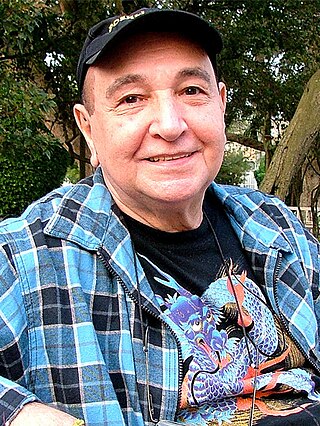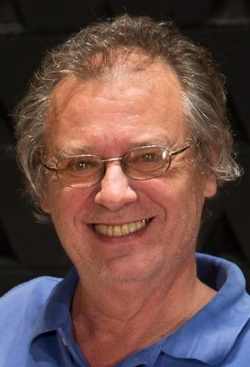
Antônio Carlos Brasileiro de Almeida Jobim, also known as Tom Jobim, was a Brazilian composer, pianist, guitarist, songwriter, arranger, and singer. Considered as one of the great exponents of Brazilian music, Jobim merged Samba with Cool jazz in the 1960s to create Bossa nova, with worldwide success. As a result, he is regarded as one of the fathers of bossa nova.

Elis Regina Carvalho Costa, known professionally as Elis Regina, was a Brazilian singer of Bossa nova, MPB and jazz music. She is also the mother of the singers Maria Rita and Pedro Mariano.

Milton Silva Campos do Nascimento, also known as Bituca, is a Brazilian singer-songwriter and multi-instrumentalist.

Eduardo de Góes "Edu" Lobo is a Brazilian singer, guitarist, and composer.

Joyce Moreno, commonly known as Joyce, is a Brazilian singer-songwriter and guitarist.

Eumir Deodato de Almeida is a Brazilian pianist, composer, arranger and record producer, primarily in jazz but who has been known for his eclectic melding of genres, such as pop, rock, disco, rhythm and blues, classical, Latin and bossa nova.
Clube da Esquina was a Brazilian music artists collective, originating in the Brazilian state of Minas Gerais. It is also the name of a double album from 1972. Clube da Esquina mixes rock and roll, progressive rock, bossa nova and jazz styles, with Brazilian folk music and classical music influences. The Beatles and the Platters were also an important influence on Clube da Esquina.

Getz/Gilberto is an album by American saxophonist Stan Getz and Brazilian guitarist João Gilberto, featuring pianist and composer Antônio Carlos Jobim, who also composed many of the tracks. It was released in March 1964 by Verve Records. The album features the vocals of Astrud Gilberto on two tracks, "Garota de Ipanema" and "Corcovado". The artwork was done by artist Olga Albizu. Getz/Gilberto is a jazz and bossa nova album and includes tracks such as "Desafinado", "Corcovado", and "Garota de Ipanema". The last received a Grammy Award for Record of the Year and started Astrud Gilberto's career. "Doralice" and "Para Machucar Meu Coração" strengthened Gilberto's and Jobim's respect for the tradition of pre-bossa nova samba.

Antônio Maurício Horta de Melo is a Brazilian jazz guitarist and vocalist.
"Waters of March" is a Brazilian song composed by Antônio Carlos Jobim (1927–1994) in 1972. Jobim wrote both the Portuguese and English lyrics. The lyrics, originally written in Portuguese, do not tell a story, but rather present a series of images that form a collage; nearly every line starts with "É...". In 2001, "Águas de março" was named as the all-time best Brazilian song in a poll of more than 200 Brazilian journalists, musicians and other artists conducted by Brazil's leading daily newspaper, Folha de S.Paulo. It was also voted by the Brazilian edition of Rolling Stone as the second greatest Brazilian song.

Elis & Tom is a bossa nova album, released in 1974, recorded by Brazilian singer Elis Regina and singer-songwriter Antônio Carlos Jobim.
The Zimbo Trio is a Brazilian instrumental ensemble, established in 1964 in São Paulo, and originally comprising Amilton Godoy (piano), Luís Chaves (bass) and Rubinho Barsotti (drums). The Trio was one of the most influential groups of Brazilian music in the second half of the 20th century.

João Donato de Oliveira Neto was a Brazilian jazz and bossa nova pianist as well as a trombonist from Rio Branco. He first worked with Altamiro Carrilho and went on to perform with Antonio Carlos Jobim and Astrud Gilberto. Because of the area he grew up in Brasil he was able to hear Cuban music on the radio. This influence would manifest itself in many of his compositions, piano, and trombone playing. Donato's most well-known compositions include: "Amazonas", "Lugar Comum", "Simples Carinho", "Até Quem Sabe" and "Nasci Para Bailar".
"Inútil Paisagem" is a song composed by Antônio Carlos Jobim, with lyrics by Aloysio de Oliveira. An English-language version with lyrics by Ray Gilbert is titled "If You Never Come to Me".

Itaiguara Mariano Brandão is a New York City-based recording artist and bassist. A native of Rio de Janeiro, Brazil, Brandão has toured internationally and recorded extensively with a wide range of Latin and World Music artists such as: Dianne Reeves, Ivan Lins, Marcos Valle, Toquinho, Carlos Lyra, Roberto Menescal, Leny Andrade, Joyce (singer), Paulo Braga, Randy Brecker, Dom Salvador, Paquito D'Rivera, Claudio Roditi, Robin Eubanks, Jovino Santos-Neto, Emílio Santiago, Elba Ramalho, Guilherme Arantes, Romero Lubambo, Léo Gandelman among many others. He has recorded on major labels and played on the 22nd Annual Latin Grammy Awards winning album Ancestras by Petrona Martinez. Brandão has been one of the most sought-after Brazilian bassists in the Northeast and freelance musicians in the United States, having completed nearly 7,500 performances in the past 30 years.

Duduka Da Fonseca, born Eduardo Moreira Da Fonseca is a Brazilian jazz drummer who is a founding member of Trio da Paz with Romero Lubambo and Nilson Matta. He leads the Duduka da Fonseca Trio, with David Feldman and Guto Wirtti. Duduka is a resident of New York City.
"Triste" is a bossa nova song composed in 1966 by Antônio Carlos Jobim, who also wrote lyrics for it in both English and Portuguese.
José Luis Segneri Oliveira is a Brazilian composer, saxophonist, flutist, producer, arranger and multi-instrumentalist. Oliveira became famous in the 1980s performing and recording with Caetano Veloso, Gilberto Gil, Gal Costa, Tania Maria and Cazuza.

Daniel Canetti Jobim is a Brazilian singer, composer, and pianist. He is the grandson of Tom Jobim, one of the founders of bossa nova. He performs the music of his grandfather as well as Música popular brasileira. His father was the guitarist Paulo Jobim.

Paulo Hermanny Jobim was a Brazilian singer, guitarist, flutist, arranger, environmentalist, and architect. He was the son of the "founder of bossa nova", Tom Jobim (1927–1994) and father of pianist Daniel Jobim.














